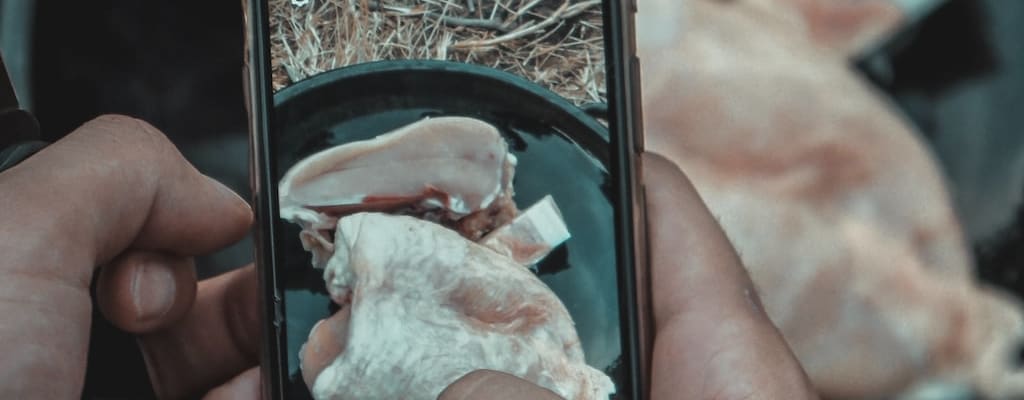in the wrong place at the wrong time: Idiom Meaning and Origin
What does ‘in the wrong place at the wrong time’ mean?
The idiom "in the wrong place at the wrong time" means being in a situation where something bad happens due to unfortunate timing or circumstances.

Idiom Explorer
The idiom "in the toilet" means that something is in a troubled or bad state, typically referring to a situation that has gone wrong or is failing. It is a casual expression that implies a negative outcome or result.
The idiom "in the right place at the right time" means being present at the perfect moment or location to take advantage of an opportunity or a fortunate event.
The idiom *in the drink* means to be in a difficult or unpleasant situation, often caused by one's own actions or decisions. It originates from the idea of someone falling into water or a drink, representing a sudden and unexpected mishap or trouble.
The idiom "in a bind" means to be in a difficult or challenging situation where there are not many options or solutions available.
The idiom "go wrong" means that something does not go as planned or expected, and results in a failure or a mistake.
The idiom "go down the wrong way" means to do or say something that is inappropriate, offensive or causes discomfort to others.
The idiom "get into the wrong hands" means that something has fallen into the possession or control of someone who will misuse or mishandle it in some way.
The idiom "get into trouble" means to find oneself in a difficult or dangerous situation due to one's actions or decisions.
The idiom "fish out of water" refers to a person who feels uncomfortable or out of place in a particular situation or environment.
Unfortunate Coincidence
The idiomatic phrase "in the wrong place at the wrong time" is an expression that is commonly used in English-speaking countries, including the United States. It conveys the idea of being unlucky or unfortunate due to circumstances beyond one's control. This phrase implies a lack of foresight or awareness that results in negative consequences.
One notable characteristic of this idiom is its flexibility in usage. Whether it be witnessing a crime or experiencing a natural disaster, "in the wrong place at the wrong time" encapsulates the feeling of being caught off guard or unprepared when faced with unfortunate events. It implies a lack of control or influence over the circumstances.
The origins of this idiom are not clearly documented. However, its meaning aligns with the concept of bad luck, which has been a topic of cultural discussion for centuries. The phrase itself emerged in the English language around the 20th century, and it has since become a common expression in everyday speech.
The usage and popularity of this idiom can be attributed to its simplicity and relatability. It effectively communicates a complex idea in a concise manner, making it accessible to a wide range of English-speaking individuals. Furthermore, this idiom has become ingrained in contemporary English language and culture, appearing frequently in literature, media, and everyday conversations.
While "in the wrong place at the wrong time" generally conveys a negative connotation, it also fosters contemplation about the role of chance and circumstance in our lives. It suggests that sometimes luck or fate may play a significant role in the outcomes we experience. This idiom serves as a reminder of the unpredictable nature of life and the potential for unforeseen events to shape our destinies.
The phrase "in the right place at the right time" is an antonym of "in the wrong place at the wrong time." It suggests being lucky or fortunate due to circumstances aligning in one's favor. While "in the wrong place at the wrong time" implies a lack of control, "in the right place at the right time" underscores the idea that being in the right situation or location can result in positive outcomes.
This idiom indicates that making the right choices or being present in advantageous circumstances can lead to success or favorable experiences. It highlights the role of opportunity, preparation, and favorable timing in achieving desirable outcomes. "In the right place at the right time," individuals may find themselves encountering unexpected opportunities, meeting influential people, or experiencing positive turning points in their lives.
The idiom "go wrong" is closely related to "in the wrong place at the wrong time" as it refers to situations or events that deviate from the expected or desired outcome. When things "go wrong," they do not proceed as planned, resulting in negative consequences or unfavorable circumstances.
This idiom emphasizes the unpredictability and potential pitfalls that can arise in various situations, regardless of one's intentions or efforts. When things "go wrong," individuals may find themselves facing unexpected challenges, setbacks, or failures. It serves as a reminder that despite our best intentions, life can take unexpected turns that lead to unfavorable outcomes.
The phrase "go down the wrong way" is another expression closely related to "in the wrong place at the wrong time." It suggests making a wrong decision or taking an incorrect path that leads to negative consequences. This idiom is often used to describe situations where individuals make choices that result in unfavorable outcomes.
Going down the wrong way can lead to various negative consequences, such as loss, failure, or even danger. It signifies taking a path that deviates from what is considered right or optimal, resulting in undesirable outcomes. This idiom serves as a cautionary reminder to carefully consider our choices and actions to avoid going down a path that may lead to negative consequences.
The idiomatic phrase "in the wrong place at the wrong time" has become a widely recognized expression in English-speaking countries, including the United States. Its usage conveys a sense of being unlucky or unfortunate due to circumstances beyond one's control. Although the specific origins are unclear, the phrase resonates with individuals who have encountered unexpected misfortune and serves as a reminder of life's unpredictability. As we navigate through various situations and locations, the possibility of finding ourselves in the wrong place at the wrong time lingers, reminding us of the delicate balance between chance and circumstance.
Example usage
Examples:
- He was in the wrong place at the wrong time when the robbery occurred.
- She always seems to be in the wrong place at the wrong time, missing out on all the exciting events.
- Unfortunately, the bus arrived early and left him in the wrong place at the wrong time, causing him to miss his appointment.
More "Misfortune" idioms



